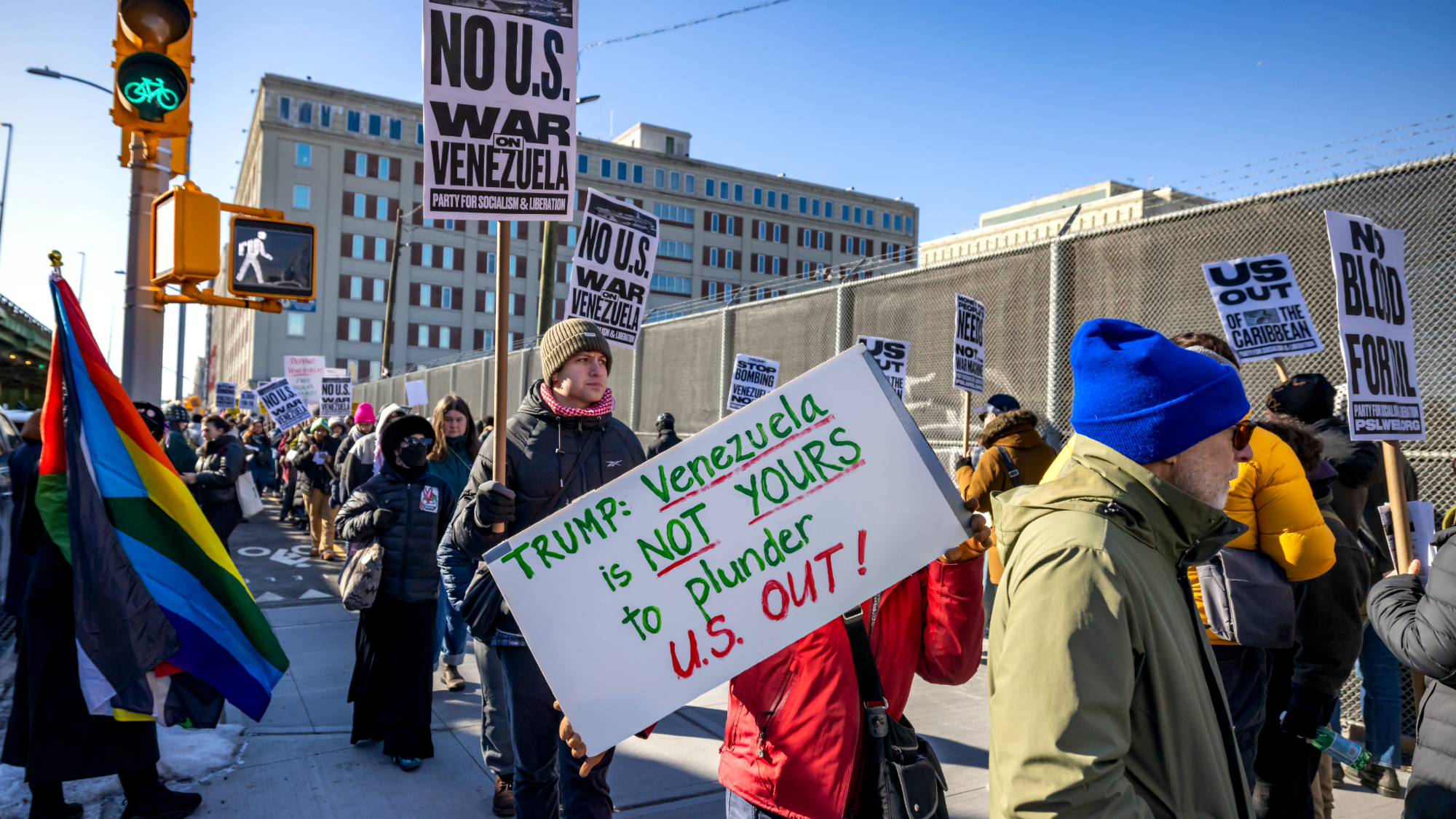The GOP needs a new immigration strategy
Donald Trump has diagnosed a real problem. He's just offering the wrong prescription.


No matter who wins the GOP's presidential primary, the Trump phenomenon calls for some soul-searching on the right. One obvious place to start is immigration, since everyone agrees anti-immigrant sentiment is a big driver of Trump's success.
Policy elites, on both sides of the aisle, have ignored the legitimate concerns of the white working class for decades — and the Trump surge may be comeuppance. Some 13 percent of the U.S. population today was born abroad. That's up from less than 5 percent in 1970. But white, working-class voters now form the Republican Party's base. For over 10 years now, a band of intellectuals known as "reform conservatives" have been arguing it's time to pay attention to their concerns. One of the sharpest reform conservatives, and one of the earliest to understand the problem, has been National Review Executive Editor Reihan Salam.
In an important article, Salam says that it's time to reshape the Republican position on immigration. Salam's article comes in response to Trump, but he's no advocate for Rio Grande walls or Muslim bans. While Salam supports increasing high-skilled immigration to the United States, he believes low-skilled immigration is deleterious to the social fabric of many communities, and he agues that unchecked immigration could increase racial tension and polarization in America.
The Week
Escape your echo chamber. Get the facts behind the news, plus analysis from multiple perspectives.

Sign up for The Week's Free Newsletters
From our morning news briefing to a weekly Good News Newsletter, get the best of The Week delivered directly to your inbox.
From our morning news briefing to a weekly Good News Newsletter, get the best of The Week delivered directly to your inbox.
The problems of the American working class are more complicated than immigration alone can address, but he's right that both the policy and the rhetoric conservatives marshal when discussing this issue need to change. Social cohesion plays an important part in forming a healthy polity and society and ethnic polarization can be self-perpetuating and hugely damaging.
The evidence Salam marshals in support of the notion that in many communities low wages and recurring waves of new immigrants mean newcomers with limited skills often now fail to integrate, or "integrate downward" into the pathological behaviors of America's poor, is disquieting. Salam writes:
Several decades from now, the descendants of educated native-born Hispanics will probably have blended into the American mainstream — yet the descendants of the less educated may find themselves as a separate and distinct population, isolated from the corridors of power and concentrated among the poor and working-class.
For centuries, African Americans have been concentrated in the bottom half of the U.S. income distribution while the top half has been largely white. This has contributed to a sense of permanent outsider status among many African Americans, who feel wounded and at times angered by their exclusion from the American Dream, and for good reason. This black–white racial divide is so familiar and so deeply embedded in our nation’s history that we take it for granted. But could it prove to be just the tip of the iceberg, a preview of other ethnic conflicts that could emerge as the children and grandchildren of less-skilled immigrants face discrimination and economic hardship? It is all too easy to imagine a future in which poor Hispanics and blacks grow ever more resentful of white wealth and power, while wealthy whites come to see poor blacks and Hispanics as members of rival tribes rather than compatriots. [National Review]
A free daily email with the biggest news stories of the day – and the best features from TheWeek.com
And that (reasonable plausible) future would be a huge problem for this country.
One key element in the successful integration of previous waves of immigrants was what Salam calls "melting-pot nationalism." Immigrant groups like Italians and the Irish succeeded in part because after they came over the U.S. curtailed immigration and the new Americans were forced to assimilate. This assimilation is the desired result of a responsible immigration policy, regardless of how many immigrants we take in, and what mix we do. This is where any immigration policy should start: Immigration to America is a privilege, and not a right, and immigrants have duties as well as rights, and immigration must also be viewed as integrating newcomers — with their richness and diversity — into a healthy polity.
The immigration debate we're having now is mired in vacuous, if true, platitudes: "We can't deport everyone who's here." "High-skilled immigrants will boost the GDP." Well, sure, but what do we want out of our immigration policy? And this means asking what America is really about. That's a question that is a lot harder to ask, and a lot harder to answer, than the ones we typically pose this time in an election season.
Pascal-Emmanuel Gobry is a writer and fellow at the Ethics and Public Policy Center. His writing has appeared at Forbes, The Atlantic, First Things, Commentary Magazine, The Daily Beast, The Federalist, Quartz, and other places. He lives in Paris with his beloved wife and daughter.
-
 How Bulgaria’s government fell amid mass protests
How Bulgaria’s government fell amid mass protestsThe Explainer The country’s prime minister resigned as part of the fallout
-
 Femicide: Italy’s newest crime
Femicide: Italy’s newest crimeThe Explainer Landmark law to criminalise murder of a woman as an ‘act of hatred’ or ‘subjugation’ but critics say Italy is still deeply patriarchal
-
 Brazil’s Bolsonaro behind bars after appeals run out
Brazil’s Bolsonaro behind bars after appeals run outSpeed Read He will serve 27 years in prison
-
 Americans traveling abroad face renewed criticism in the Trump era
Americans traveling abroad face renewed criticism in the Trump eraThe Explainer Some of Trump’s behavior has Americans being questioned
-
 Nigeria confused by Trump invasion threat
Nigeria confused by Trump invasion threatSpeed Read Trump has claimed the country is persecuting Christians
-
 Sanae Takaichi: Japan’s Iron Lady set to be the country’s first woman prime minister
Sanae Takaichi: Japan’s Iron Lady set to be the country’s first woman prime ministerIn the Spotlight Takaichi is a member of Japan’s conservative, nationalist Liberal Democratic Party
-
 Russia is ‘helping China’ prepare for an invasion of Taiwan
Russia is ‘helping China’ prepare for an invasion of TaiwanIn the Spotlight Russia is reportedly allowing China access to military training
-
 Interpol arrests hundreds in Africa-wide sextortion crackdown
Interpol arrests hundreds in Africa-wide sextortion crackdownIN THE SPOTLIGHT A series of stings disrupts major cybercrime operations as law enforcement estimates millions in losses from schemes designed to prey on lonely users



